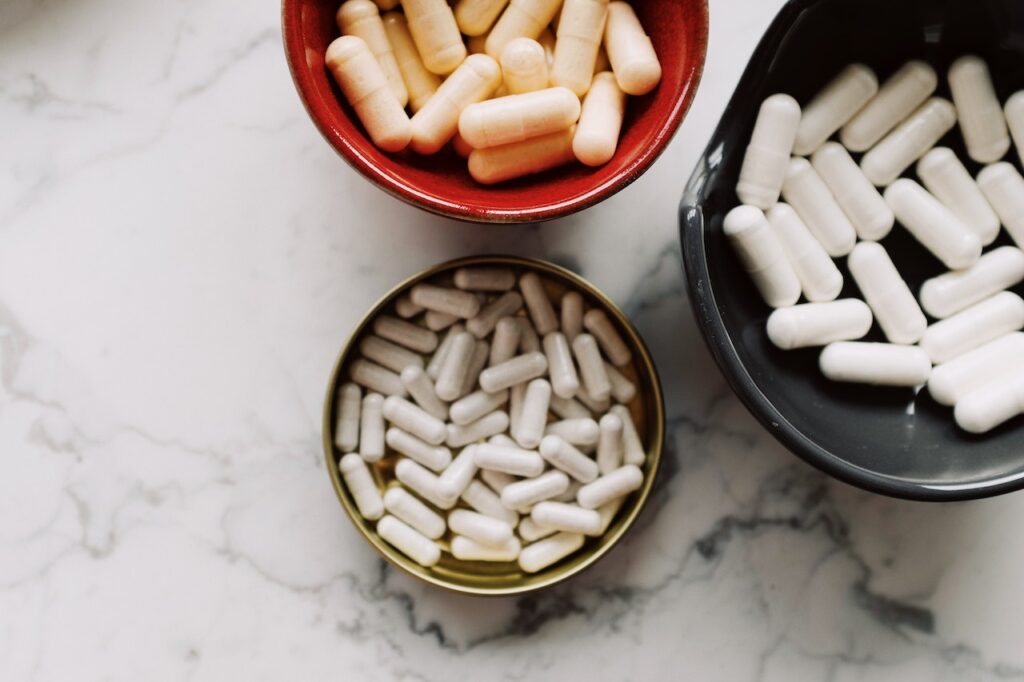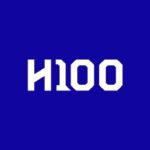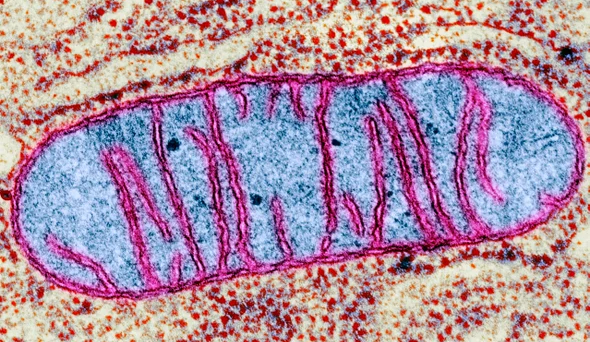4 NAD+ Precursors And Which One Is More Effective
Science • September 7, 2022 • 12min read

Highlights
- NAD+ (Nicotinamide Adenine Dinucleotide) is a crucial molecule and its heightened levels in the body may guarantee a healthier lifespan and slower aging
- NAD+ precursors or boosters are available naturally in foods besides being on the market in the form of supplements
- The most studied NAD+ precursors are NMN, NR, NA, and NAM
- There are numerous health benefits applied to NAD+ precursor supplements
- The most effective NAD boosters are considered to be NMN and NR for being the closest to converting to NAD+
- The NAD+ boosters are generally believed to be safe to consume
Introduction
NAD+ is the abbreviation for Nicotinamide Adenine Dinucleotide. It is a critical coenzyme in all living creatures and is required for healthy survival. As Harvard University Professor David Sinclair claims, the absence of this molecule would cause immediate death.
Although NAD+ levels decline with age, due to intrinsic or extrinsic stressors and health deteriorations, there are scientifically studied NAD precursors which can elevate its levels. In this article, we focused on the 4 most researched NAD+ precursors and how they work in the body to establish high NAD+ levels to enhance energy production and promote slow aging.
4 Most Studied NAD+ Precursors And Their Health Implications
According to studies, a high concentration of NAD+ levels may hinder numerous health complications both in human and animal individuals. Therefore, NAD+ depletion becomes a big concern on the way to slow aging or longevity. After many years of research, scientists concluded that NAD+ precursors may be reliable agents for increasing this critical molecule.
NAD+ precursors are scientifically researched potent molecules that are available naturally and are used to boost NAD+ levels in humans and animals. The NAD+ precursors or boosters are available in the form of encapsulated or powder supplements. The most studied 4 NAD+ boosters are
- NR (nicotinamide riboside)
- NMN (nicotinamide mononucleotide)
- NAM (nicotinamide)
- NA (nicotinic acid)
Here we discuss what you need to know about each of these precursors and what impact they have on your health and lifespan.
Nicotinamide Riboside (NR): Health Benefits, Uses, and Side Effects

Nicotinamide Riboside. Image source
Nicotinamide Riboside (NR) came to be one of the most used and researched Nicotinamide adenine dinucleotide (NAD+) precursors. NR is a form of the Vitamin B3 family and is also known as Niagen or Niacin. NR converts to NAD+ in two steps. This means when you take this NAD+ precursor it turns into NMN (another precursor) and only then transforms into NAD increasing its levels.
This vitamin B3 alternative was found in 1938 when pellagra, a disease caused by Vitamin B3 (Niacin) deficiency in the diet, was widespread. Niacin was used as a preventative measure for this disease. Later, in 2016 the first controlled human clinical trial using NR supplementation with healthy men and women was published.
According to this study, the augmentation of NAD+ content in human and animal bodies may prevent such health conditions as diabetes, age-related weight gain, Alzheimer’s disease, and other degenerative disorders. The study author Charles Brenner, Ph.D., the professor concluded: “This trial shows that oral NR safely boosts human NAD+ metabolism.”
More recent studies demonstrated the health benefits of NR supplements on Alzheimer’s disease. The 5-months NR supplementation increased the brain NAD+ levels hindering neuroinflammation and cellular senescence (aging).
However, there are not enough human studies on NR supplements and their health impacts on human health. Studies with mice suggest that NR may activate other longevity genes called Sirtuins, especially SIRT1. The latter plays a role in caloric restriction for a longer lifespan, assists in DNA damage repair, and reduces inflammation.
All in all, this NAD booster may deliver such health benefits as
- NAD+ levels improvement
- repress age-related weight gain by increasing SIRT1
- prevention of neurodegenerative disorders by increasing brain NAD levels
- help in DNA repair
- reduce inflammation
- improve metabolism
Study professors believe that a single 100 mg, 250 mg, or 500 mg oral administration with this precursor is safe for increasing NAD+ levels in mice. In addition, Brenner made a pilot human study on himself by taking 1 g (1000 mg) NR seven days once a day. He documented a 2.7 times increase in NAD+ levels with no significant side effects. Hereto, these health implications may be safely and easily transferred to humans.
Yet, most of the studies with NR supplementations were conducted on rodents. And the ones with humans were short-term and with a few participants. This implies that safety measures must be taken into consideration while supplementing with this NAD+ precursor.
What’s more, after a month of use, some NR consumers documented
- mild fatigue
- nausea
- headache
- diarrhea and abdominal discomfort
Hence, NR supplement providers offer 250 mg – 300 mg capsules with 2 servings a day. Some NR brands also provide powdered NR supplements. Yet, one can receive Nicotinamide Riboside naturally from foods such as
- cow’s milk
- fruits and green vegetables
- meat
- fish
- yeast
- whole grains
Nicotinamide Mononucleotide (NMN): Health Benefits, Uses, And Side Effects

Nicotinamide Mononucleotide. Image source
Nicotinamide mononucleotide (NMN) is another well-studied NAD+ precursor which showed numerous health benefits in human and animal studies. NMN is available in two forms – α and β and is a crucial molecule that is present in all living organisms. This NAD+ booster is considered to be more effective due to being one step away from converting into NAD+ and consuming less energy.
According to the study published in 2020, 24-months-old unhealthy mice were treated with NMN supplements for two weeks. These mice’ health was deteriorated by age-induced neurovascular alterations and neuroinflammation causing vascular cognitive impairment.
However, 2 weeks of NMN supplementation documented NAD+ rise in the brain and SIRT1 gene activation. This study showed that NAD+ augmentation with this precursor may improve cerebral blood flow and prevention of neurodegeneration during aging.
Another study with old and young mice showed the effects of NMN supplements on the cognitive function of these creatures. Two weeks of NMN administration showed promising results in old mice who improved their memory, the ability to recognize objects, and find the way out of the maze leaving only one mistake.
There are numerous other health impacts of NAD+ boost through NMN supplements including
- NAD+ elevation
- circadian rhythm regulation
- increased Sirtuin activation
- weight gain suppression
- prevention of neurodegenerative disorders
- enhanced energy metabolism
- insulin sensitivity
- improved eye function
- DNA damage prevention
Most of the studies conducted on human individuals were conducted with 250 mg or 500 mg of NMN. Scientists noted health benefits with these doses, although, it is safe to take up to 1000 mg (1g) of NMN daily as David Sinclair does.
It is worth noting that with the liposomal NMN supplements one may not require higher than 250 mg to effectively increase NAD levels.
NMN supplements are available in the market in encapsulated and powder forms. While powder NMNs are more affordable, encapsulated NMNs are easy to carry, and consume and may contain additional vitamins in the capsule.
However, proper dosage of NMN supplements showed no significant side effects during clinical studies, it is crucial to consult health providers in case of higher than normal doses. The side effects with higher than 1 g (1000 mg) daily NMN may include
- mild fatigue
- nausea
- headache
- diarrhea and abdominal discomfort
While there are numerous trustworthy NMN supplement providers in the market, one may naturally receive NMN from food such as
- cucumbers
- avocado
- tomatoes
- cabbage
- broccoli
- edamame
- mushrooms
- beef
- shrimp
Nicotinamide (NAM): Health Benefits, Uses, And Side Effects

Nicotinamide. Image source
Nicotinamide or Niacinamide (NAM) is another form of Vitamin B3 and was also discovered during the same period as NR. The deficiency of this NAD precursor has been highly correlated with neuronal system damage, ischemia, inflammatory diseases, and pellagra.
Recent research aimed to demonstrate how Nicotinamide elevation through dietary supplements and food can not only form neurons but also prevent their injury due to aging degeneration. The research authors evidenced that such neurodegenerative disorders as Alzheimer’s, Huntington’s, and Parkinson’s may be ameliorated after boosting NAD+ through NAM supplementation.
Another piece of evidence was the enhanced activation of SIRT1 protein which is closely associated with neuroprotection and anti-inflammatory factor. Along with the neuroprotective characteristics of NAM is the activation of DNA repair mechanisms. Simply put, the PARP, a coenzyme that is activated in response to DNA damage, and its overactivation deplete most of the NAD+ levels. However, NAM may inhibit PARP activation thus preventing oxidative stress, excessive apoptosis (uncontrolled cell death), and NAD+ drainage.
A study conducted in 2020 with a small group of 5 people also demonstrated increased levels of NAD+ levels with this precursor. Study succeeded in showering that a single dose of 500 mg NAM effectively increased the NAD+ in the whole blood of healthy men. Whereas lower doses (100 mg – 200 mg) delivered no significant changes in NAD levels.
In addition to this, Nicotinamide has long been used in many skin care product formulations thanks to being a protective agent against skin inflammations. Moreover, studies showed the health effects of the oral administration of NAM supplements for acne and other skin conditions.
Hence, we can draw the short list of health benefits of NAM, the 3rd NAD+ booster on our list
- prevention of skin inflammatory conditions
- enhanced NAD+ levels
- protection of the central neuronal system
- DNA damage prohibition
- SIRT1 activation
- blood NAD+ improvement
It is required to take at least 15 mg of this vitamin B3 from food. However, the safe dose of NAM supplements for daily intake is 500 mg – 1500 mg to effectively rise NAD+ in the body and experience no adverse effects. Yet, with higher than mentioned doses, one may face side effects, including
- stomach discomfort
- dizziness
- diarrhea
- headaches
- hot flashes or rush
- possible redness and itching (with skin care products)
As mentioned, it is possible to receive the required daily dose of Nicotinamide from different foods. But the recommended dietary allowance (RDA) may differ from person to person. For instance, men may need 16 mg, females- 14 mg, pregnant women- 18 mg, and breastfeeding 17 mg of NAM daily. The foods that contain ample amounts of Nicotinamide are
- meat
- fish
- eggs
- vegetables
- cereals
- milk
Nicotinic Acid (NA): Health Benefits, Uses, And Side Effects

Nicotinic Acid. Image source
Nicotinic Acid is one of the 8 forms of vitamin B3 and is also referred to as Niacin. When absorbed, NA or niacin is then converted into NAD+ by all the tissues of the body. Similar to the above-discussed NAD+ precursors, NA deficiency is also correlated with pellagra which is characterized by rashed and rough skin and pigmentation. The niacin deficiency may also cause stomach discomfort, depression, headaches, and neuronal dysfunction.
The main role of NA is the elevation of NAD and NADP coenzymes, which are involved in hundreds of body reactions. Though Nicotinic Acid can be obtained from food or supplements, the human body also makes it through the amino acid tryptophan which is present in the liver and assists in the activation of Sirtuin genes and rise of NAD+ concentration.
Clinical trials with Nicotinic Acid documented that the supplementation with this NAD+ booster may help reduce low-density lipoprotein cholesterol levels (LDL- “bad” cholesterol) and increase high-density lipoprotein levels (HDL- “good” cholesterol). This means, that NA may decrease blood fat levels minimizing the risk of cardiovascular disorders. However, the study scientists are not adamant that NA can help ameliorate the mortality risk from heart diseases.
A noteworthy study designed with 12, 243 participants was published last year. The study aimed to establish the correlation between Nicotinic Acid dietary intake and high blood pressure or hypertension. The result of 7-round surveys and blood tests showed that the daily intake of NA may have preventative effects on hypertension and lower the risks of high blood pressure.
An earlier study found the preventative aspects of NA against type 1 diabetes (T1D). According to the study, the treatment with daily dietary Nicotinic Acid and other vitamin B3s may potentially increase insulin synthesis in children. And it may even prevent the development of diabetes if administered before the onset of the disease. Moreover, 20, 195 children who were NA-treated showed a lower rate of developing T1D than the ones who refused to be NA-treated.
Niacin (Nicotinic Acid) is long known to be used to prevent the onset of schizophrenia. The study suggests that the Nicain deficiency may lead to neuronal damage and be a hallmark of brain cell degeneration. Hence, niacin augmentation may have the potential to prevent some types of schizophrenia.
Another recent study suggests that 500 mg – 1500 mg of Nicotinamide (NAM) or Nicotinic Acid (NA) may prevent skin cancer development while preventing DNA mutations. Also, NA supplementation may prevent the skin from UV- induced damage.
Summarizing all the health benefits applied to Nicotinic Acid we get the following list
- NAD+ content increase
- Mental and cognitive support
- Prevention of hypertension and blood pressure
- Low risk of heart diseases
- Prevention for UV-induced skin damage
- Prevention of skin cancer
- Lower risk of developing T1D
The daily recommended dietary intake of NA varies for people of different gender and ages. For adults aged 14 and more, the RDA (recommended dietary allowance) is 14 mg. For women, the RDA is 18 mg if pregnant, and 17 mg if breastfeeding. In the case of supplementation, the daily intake of NA should not exceed 500-1500 mg a day due to the following scientifically proven side effects
- light-headedness
- flashing
- vomiting
- issues with vision
- skin rash or yellowing
- liver toxicity
Along with supplements, foods that are abundant in NA are
- poultry (especially turkey)
- beef
- fish
- nuts
- legumes
- grains
Conclusion
In conclusion, we can note that the balanced presence of the B3 family of vitamins is crucial for the healthy survival of the body. Plus, these NAD+ boosters may also be agents for prolonging the animal and human lifespan.
Out of the 4 mentioned NAD+ precursors the two, NR and NMN are the closest to converting into NAD+. Hence, the elevation of NAD content through the proper doses of these supplements may guarantee DNA protection, better energy metabolism, boosted cognitive function, and overall health no longer after their usage.
Increased NAD+ levels are crucial for healthy organismal functioning. Despite the NAD+ precursors available in food and the numerous supplement providers in the market, you should be informed which of them works the best for your body. Also, while supplementing with NAD+ boosters it is important to pay close attention to the formula of the supplements, the bioavailability, and the dosage for your safety.



